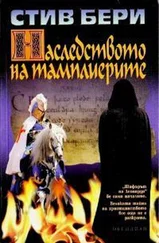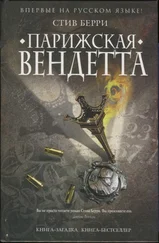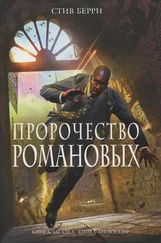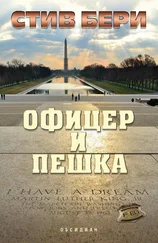“They’re the same as the hacienda’s,” she said.
He nodded. “Exactly the same is my guess. Taken there for our benefit by Ada.”
She walked over to the windows. Slatted sunshine spilled in past the blinds. An enormous mahogany chair with thick cushions sat before one of them, facing outward.
“You have to wonder who sat here,” she said. “It seems like the king’s chair.”
It also brought to mind another mansion she’d read about, not all that far from here, across the border in Argentina. Near San Carlos de Bariloche, in the Andean foothills, on the southern shore of Lake Nahuel Huapi.
Residencia Inalco.
Popular lore liked to say that Hitler and Eva Braun escaped the Führerbunker in 1945 and managed to make it to Argentina, where they supposedly lived for a time at Inalco. Most agreed the tale was fiction, created to bring more tourists to Patagonia, but the story survived thanks to a variety of books and television shows that offered much in the way of speculation and little in proof. Yet Bariloche had harbored war criminals. Lots of them. And they would have felt right at home. Plenty of Alpine-style architecture thanks to Germans who settled there in the late 19th century. Combined with a cool climate, deep-blue lakes, and snowcapped mountains, the area was a veritable slice of Bavaria. History noted that Juan Perón, who headed Argentina after the war, had allowed the secret immigration of some thirteen hundred Nazis fleeing Europe. Now here she was beside another South American lake that reeked with suspicion, inside a place that had the feel of a museum, unlived in, untouched by human warmth. What was this? A residence? A gathering spot? A memorial? All financed with gold stashed in South American banks by former Nazis intent on living until old age?
And why did it still exist?
World War II had been over for a long time. Nearly all of the German participants were dead. Any who still lived would have been lesser lieutenants, the lowest of the lowest echelon, conscripted in the dying days of the Third Reich. Young men then, many just boys, who tried to impress their Führer by slaughtering civilians. Nuremberg labeled their efforts “crimes against humanity,” and they’d been hunted ever since—not with the same dogged determination a Mengele, or an Eichmann, or a Klaus Barbie commanded, but hunted nonetheless.
“It’s spooky,” she said.
“I agree. Reminders of the Third Reich are all here, only subtle. Nothing overt. You have to know what you’re looking at. Let’s check upstairs.”
A door opened somewhere in the house.
Loud.
Obvious.
They both reached for their weapons.
Footsteps thumped down the outer corridor, approaching the study.
There was no place to hide, so they assumed a position behind the open door that led out to the hallway, guns ready.
Two men with rifles entered.
Then Ada appeared and turned their way.
“ Guten morgen. We must go. Now.”
CHAPTER THIRTY-FIVE
STUTTGART, GERMANY
1:00 P.M.
Pohl completed the last interview, pleased with the past hour. News coverage was clearly the most effective tool in German politics. Silly restrictions on paid television advertisements limited the number of political spots and the time when they could run, as well as requiring a somber announcement that they were all partisan statements. Needless to say, few watched and even fewer listened to those messages.
Talk shows, interviews, and news programs, though, were different. As was the internet. There were no rules or limitations, which made them perfect for disseminating propaganda. His policy, instituted from the first day of the campaign, was to make himself available for at least an hour each day to answer questions. Of course, he was selective about the correspondents afforded the time, and his staff quietly doled out the privilege as a reward for favorable coverage. It was one of the ways he made reporters’ jobs easier. A way for them to ingratiate themselves with their editors. And so far the chosen group had responded to his generosity with a barrage of coverage that had translated into positive percentage points in the polls.
But he wasn’t all that surprised.
Unlike in the United States and Britain, where most of the press leaned left, the fourth estate in Germany was tilted right.
And for that he was eternally grateful.
He glanced at his watch and noted the time. The last interview, with a news crew from Hamburg, had run a bit long. He needed a few minutes of privacy, so he asked his staff to excuse themselves on the pretense of having a short nap. The rest of the day was going to be arduous with stops scheduled in Killesbergpark, the university, and the Institute of International Relations, where he was scheduled to speak after dinner. Tomorrow would take him to the Daimler factory in the eastern suburbs and some handshaking at the front gate. Six hundred thousand people lived in and around Stuttgart. Two of his publishing houses were headquartered south of town, along with a respectable chunk of the remaining German publishing industry. Though he was a local employer with connections that ran deep into city politics, and his latest polling numbers showed him strong in both the city and surrounding countryside, he’d still scheduled two full days in the area—no sense taking chances—and he intended for the newspapers and television to be saturated with him over the course of today and tomorrow.
He was headquartered at the Hotel am Steigenberger. The proprietor, a longtime supporter, had provided a suite that overlooked the Palace Garden. As the last of his staff filtered from his second-floor room, he reached for the phone and dialed the number he’d long ago memorized. Per a message sent last night through an aide, his call would be expected.
One ring.
Two.
“So good of you to be punctual,” the voice said on the other end after the third ring.
“It is a virtue, I am told.”
Kurt Eisenhuth laughed. “With you, everything is a virtue.”
“I am but a humble publisher. Not the grand industrialist you are.”
“You flatter me, Theodor. But we have a problem.”
“I suspected as much from your request that we speak immediately.”
“It is Marie.”
“How is Oma today? She can’t be pleased.”
His pollster had already reported that the overnight numbers showed a clear 2-point gain for him. In the “battle of the books,” as the media had dubbed yesterday’s affair, it appeared he’d emerged the clear winner.
“She plans more of what happened yesterday,” Kurt said. “She is not backing off.”
“Excellent.” And he meant it. “Do encourage her.”
“You take her too lightly.”
“Spoken like a devoted husband. I assure you, Kurt, I do not underestimate your wife. She’s both capable and intelligent, which is reflected in her ability to hold on to power for so long. That makes for a dangerous combination in a political adversary. I assume, though, you have more to tell me than that. Your message said this was important.”
“I came across some notes she made from a telephone conversation. Two Americans are presently in Chile looking into something concerning you. What, I do not know. But I thought you should be made aware.”
He couldn’t say that he was already well aware. That, in fact, he was orchestrating everything happening across the Atlantic. So he simply said, “Interesting.”
“The notes mentioned finding some photographs, nothing more. Do you know what that is about?”
“Not to worry. It has nothing to do with me.”
And he meant it.
As Marie Eisenhuth and the hapless fool on the other end of the phone would soon discover.
Читать дальше












